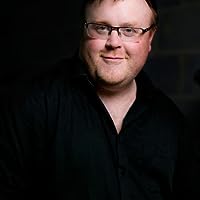Accusation Quotes
Quotes tagged as "accusation"
Showing 1-30 of 35

“In an extroverted society, the difference between an introvert and an extrovert is that an introvert is often unconsciously deemed guilty until proven innocent.”
― Venus in Arms
― Venus in Arms

“Don't call anyone a devil, because within you, you can experience hell and the devil, and the devil is nothing, but you!”
―
―
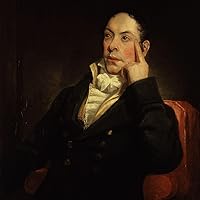
“Man of an hard heart! Hear me, Proud, Stern, and Cruel! You could have saved me; you could have restored me to happiness and virtue, but would not! You are the destroyer of my Soul; You are my Murderer, and on you fall the curse of my death and my unborn Infant’s! Insolent in your yet-unshaken virtue, you disdained the prayers of a Penitent; But God will show mercy, though you show none. And where is the merit of your boasted virtue? What temptations have you vanquished? Coward! you have fled from it, not opposed seduction. But the day of Trial will arrive! Oh! then when you yield to impetuous passions! when you feel that Man is weak, and born to err; When shuddering you look back upon your crimes, and solicit with terror the mercy of your God, Oh! in that fearful moment think upon me! Think upon your Cruelty! Think upon Agnes, and despair of pardon!”
― The Monk
― The Monk

“You took a bath without me?"
I smiled to myself at the accusation in his voice.”
― Sex, Lies and Vampires
I smiled to myself at the accusation in his voice.”
― Sex, Lies and Vampires

“Only those who matter in this world are accused of something. Accusations are part and parcel of fame.”
― The Gods Are Not Dead
― The Gods Are Not Dead

“The aim is to love God because the pure heart loves loving God and because the true mind knows He deserves it. Unlike the accusations and beliefs of the critics and skeptics, it is neither an obligation of duty; nor a fear of damnation; nor a wish for power; nor a desire to appear more righteous than others; nor because God needs it; but because through all love, truth, reason, faith, honesty, and joy in and beyond oneself and the universe, He is worthy.”
― Killosophy
― Killosophy

“Accusation reveals the character of the accuser more than the accused”
― The Great Pearl of Wisdom
― The Great Pearl of Wisdom

“There are men who wants only the woman; such are tagged, 'real men', and there are ones who want only their bodies; such are tagged, 'fake men', and there are others who wants neither the woman, nor the body; such are tagged, 'GAY MEN”
―
―
“[Refers to 121 children taken into care in Cleveland due to suspected abuse (1987) and later returned to their parents]
Sue Richardson, the child abuse consultant at the heart of the crisis, watched as cases began to unravel:
“All the focus started to fall on the medical findings; other supportive evidence, mainly which we held in the social services department, started to be screened out. A situation developed where the cases either were proven or fell on the basis of medical evidence alone. Other evidence that was available to the court, very often then, never got put. We would have had statement from the child, the social workers and the child psychologist’s evidence from interviewing. We would have evidence of prior concerns, either from social workers or teachers, about the child’s behaviour or other symptoms that they might have been showing, which were completely aside from the medical findings. (Channel 4 1997)
Ten years after the Cleveland crisis, Sue Richardson was adamant that evidence relating to children’s safety was not presented to the courts which subsequently returned those children to their parents:
“I am saying that very clearly. In some cases, evidence was not put in the court. In other cases, agreements were made between lawyers not to put the case to the court at all, particularly as the crisis developed. Latterly, that children were sent home subject to informal agreements or agreements between lawyers. The cases never even got as far as the court. (Channel 4, 1997)”
Nor is Richardson alone. Jayne Wynne, one of the Leeds paediatricians who had pioneered the use of RAD as an indicator of sexual abuse and who subsequently had detailed knowledge of many of the Cleveland children, remains concerned by the haphazard approach of the courts to their protection.
I think the implication is that the children were left unprotected. The children who were being abused unfortunately returned to homes and the abuse may well have been ongoing. (Channel 4 1997)”
― Creative Responses to Child Sexual Abuse: Challenges and Dilemmas
Sue Richardson, the child abuse consultant at the heart of the crisis, watched as cases began to unravel:
“All the focus started to fall on the medical findings; other supportive evidence, mainly which we held in the social services department, started to be screened out. A situation developed where the cases either were proven or fell on the basis of medical evidence alone. Other evidence that was available to the court, very often then, never got put. We would have had statement from the child, the social workers and the child psychologist’s evidence from interviewing. We would have evidence of prior concerns, either from social workers or teachers, about the child’s behaviour or other symptoms that they might have been showing, which were completely aside from the medical findings. (Channel 4 1997)
Ten years after the Cleveland crisis, Sue Richardson was adamant that evidence relating to children’s safety was not presented to the courts which subsequently returned those children to their parents:
“I am saying that very clearly. In some cases, evidence was not put in the court. In other cases, agreements were made between lawyers not to put the case to the court at all, particularly as the crisis developed. Latterly, that children were sent home subject to informal agreements or agreements between lawyers. The cases never even got as far as the court. (Channel 4, 1997)”
Nor is Richardson alone. Jayne Wynne, one of the Leeds paediatricians who had pioneered the use of RAD as an indicator of sexual abuse and who subsequently had detailed knowledge of many of the Cleveland children, remains concerned by the haphazard approach of the courts to their protection.
I think the implication is that the children were left unprotected. The children who were being abused unfortunately returned to homes and the abuse may well have been ongoing. (Channel 4 1997)”
― Creative Responses to Child Sexual Abuse: Challenges and Dilemmas
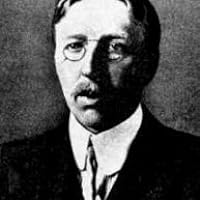
“But always, at moments when his mind was like a blind octopus, squirming in an agony of knife-cuts, she would drop in that accusation.”
― No More Parades
― No More Parades
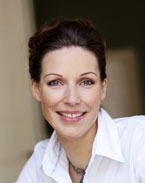
“He did not speak; merely looked at her with an expression she had seen traces of before but never fully understood until that moment. It was more apology than accusation---a dark stare of acknowledgment that told her he had long since seen his own fate in her actions, and had long since ceased to hold her responsible.”
― The Lost Sisterhood
― The Lost Sisterhood
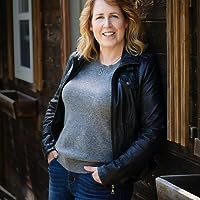
“When I finished, Dr. Fellows said, "And this was a vision you had Corey?"
"Right."
"Are you sure?"
"Huh?"
She lowered her voice. "Is it possible that Derek... influenced this vision of yours?"
"What? No."
"Absolutely not," I said. "Derek's the one who cut it short. Accidentally, but still. And if by influence, you mean 'talked us into telling a lie to get everyone out tonight,' then I don't appreciate the insinuation, Dr. Fellows."
Her brows shot up to meet her hairline. Tori smirked and leaned back onto her pillow.
"Well, Maya, I don't know you yet, so you'll forgive me if I question you."
"I don't blame you. You don't know us. But you do know Derek and, sorry, but persuasion doesn't seem to be the guy's strong suit."
"She has a point, Lauren," Tori said.
Dr. Fellows shot her a look, which Tori met with a cool gaze.
"Also," Tori said, "I really think you'd know your niece better than that. I wouldn't put it past Derek to lie to get us out of here, but no way would Chloe let him pull others into the scheme." ”
― The Rising
"Right."
"Are you sure?"
"Huh?"
She lowered her voice. "Is it possible that Derek... influenced this vision of yours?"
"What? No."
"Absolutely not," I said. "Derek's the one who cut it short. Accidentally, but still. And if by influence, you mean 'talked us into telling a lie to get everyone out tonight,' then I don't appreciate the insinuation, Dr. Fellows."
Her brows shot up to meet her hairline. Tori smirked and leaned back onto her pillow.
"Well, Maya, I don't know you yet, so you'll forgive me if I question you."
"I don't blame you. You don't know us. But you do know Derek and, sorry, but persuasion doesn't seem to be the guy's strong suit."
"She has a point, Lauren," Tori said.
Dr. Fellows shot her a look, which Tori met with a cool gaze.
"Also," Tori said, "I really think you'd know your niece better than that. I wouldn't put it past Derek to lie to get us out of here, but no way would Chloe let him pull others into the scheme." ”
― The Rising

“Looks sure can be deceiving: not every ‘ugly’ person is a ‘bad’ person (or is guilty of whatever it is that they are accused of).”
―
―
“But nothing in my previous work had prepared me for the experience of reinvestigating Cleveland. It is worth — given the passage of time — recalling the basic architecture of the Crisis: 121 children from many different and largely unrelated families had been taken into the care of Cleveland County Council in the three short months of the summer of 1987. (p18)
The key to resolving the puzzle of Cleveland was the children. What had actually happened to them? Had they been abused - or had the paediatricians and social workers (as public opinion held) been over-zealous and plain wrong? Curiously — particularly given its high profile, year-long sittings and £5 million cost — this was the one central issue never addressed by the Butler-Sloss judicial testimony and sifting of internal evidence, the inquiry's remit did not require it to answer the main question. Ten years after the crisis, my colleagues and I set about reconstructing the records of the 121 children at its heart to determine exactly what had happened to them... (p19)
Eventually, though, we did assemble the data given to the Butler-Sloss Inquiry. This divided into two categories: the confidential material, presented in camera, and the transcripts of public sessions of the hearings. Putting the two together we assembled our own database on the children each identified only by the code-letters assigned to them by Butler-Sloss.
When it was finished, this database told a startlingly different story from the public myth. In every case there was some prima fade evidence to suggest the possibility of abuse. Far from the media fiction of parents taking their children to Middlesbrough General Hospital for a tummy ache or a sore thumb and suddenly being presented with a diagnosis of child sexual abuse, the true story was of families known to social services for months or years, histories of physical and sexual abuse of siblings and of prior discussions with parents about these concerns. In several of the cases the children themselves had made detailed disclosures of abuse; many of the pre-verbal children displayed severe emotional or behavioural symptoms consistent with sexual abuse. There were even some families in which a convicted sex offender had moved in with mother and children. (p20)”
― Creative Responses to Child Sexual Abuse: Challenges and Dilemmas
The key to resolving the puzzle of Cleveland was the children. What had actually happened to them? Had they been abused - or had the paediatricians and social workers (as public opinion held) been over-zealous and plain wrong? Curiously — particularly given its high profile, year-long sittings and £5 million cost — this was the one central issue never addressed by the Butler-Sloss judicial testimony and sifting of internal evidence, the inquiry's remit did not require it to answer the main question. Ten years after the crisis, my colleagues and I set about reconstructing the records of the 121 children at its heart to determine exactly what had happened to them... (p19)
Eventually, though, we did assemble the data given to the Butler-Sloss Inquiry. This divided into two categories: the confidential material, presented in camera, and the transcripts of public sessions of the hearings. Putting the two together we assembled our own database on the children each identified only by the code-letters assigned to them by Butler-Sloss.
When it was finished, this database told a startlingly different story from the public myth. In every case there was some prima fade evidence to suggest the possibility of abuse. Far from the media fiction of parents taking their children to Middlesbrough General Hospital for a tummy ache or a sore thumb and suddenly being presented with a diagnosis of child sexual abuse, the true story was of families known to social services for months or years, histories of physical and sexual abuse of siblings and of prior discussions with parents about these concerns. In several of the cases the children themselves had made detailed disclosures of abuse; many of the pre-verbal children displayed severe emotional or behavioural symptoms consistent with sexual abuse. There were even some families in which a convicted sex offender had moved in with mother and children. (p20)”
― Creative Responses to Child Sexual Abuse: Challenges and Dilemmas
“Not how it is meant. Law is defined by its effect rather than its intention, and its chief affect his accusation, the intimation of less-than.”
― Law & Gospel: A Theology for Sinners
― Law & Gospel: A Theology for Sinners
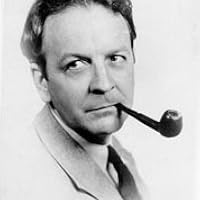
“His blue eyes frosted. 'Are you attempting to tell me my duties, sir?'
'No. But I'm having a lot of fun trying to guess what they are.”
― The Big Sleep
'No. But I'm having a lot of fun trying to guess what they are.”
― The Big Sleep

“I was, indeed, greatly irritated at the bishop's having suggested any grounds of suspicion, however remotely, against a person whom he had never seen: and I thought of letting him know my mind in Greek: which, at the same time that it would furnish some presumption that I was no swindler, would also (I hoped) compel the bishop to reply in the same language; in which case, I doubted not to make it appear, that if I was not so rich as his lordship, I was a far better Grecian.”
― Confessions of an English Opium Eater
― Confessions of an English Opium Eater

“[...] Sivesh cried one name aloud. It was the name of Azhrarn, and in that name was all the pain and loneliness and despair and accusation that any mortal throat could utter.”
― Night's Master
― Night's Master
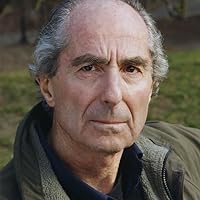
“Simply to make the accusation is to prove it. To hear the allegation is to believe it. No motive for the perpetrator is necessary, no logic or rationale is required. Only a label is required. The label is the motive. The label is the evidence. The label is the logic. Why did Coleman Silk do this? Because he is an x, because he is a y, because he is both. First a racist and now a misogynist. It is too late in the century to call him a Communist, though that is the way it used to be done. A misogynistic act committed by a man who already proved himself capable of a vicious racist comment at the expense of a vulnerable student. That explains everything. That and the craziness.”
― The Human Stain
― The Human Stain

“Living in the box means being convinced that other people and our circumstances are responsible for our feelings and our helplessness to overcome them. What we can't see when we're in the box is that the way the world appears to us is our projection, and that we are making this projection to justify ourselves in self-betrayal. We cannot see that it's not others' actions but our accusations that result in our feeling offended.”
―
―
“Whether or not an utterance can be called law depends on how it is heard, not on how it is meant. Law is defined by its effect rather than its intention, and its chief effect is accusation the intimation of a less-than.”
― Law & Gospel: A Theology for Sinners
― Law & Gospel: A Theology for Sinners
“Though it was close to midnight, Gyeong-hee sensed hundreds of figures hovering at those windows, peering out like rabbits from their burrows, eyes narrowed in accusation. If the Eobi were to give the order, the figures said, they would flock to the square in even less time than before, without exception.”
― City of Specters
― City of Specters

“I posted a truthful review of the toxic W. M. Keck Observatory on Glassdoor and got the following message back from them: ...We determined your review does not meet these guidelines because it contains an accusation of a specific criminal activity that we don't allow on our site...Best Regards, Glassdoor”
―
―
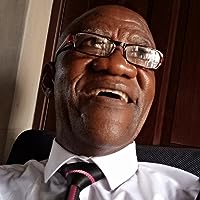
“It is foul manners to miss a fowl and labor a neighbor with careless accusation.”
― Weighty 'n' Worthy African Proverbs - Volume 1
― Weighty 'n' Worthy African Proverbs - Volume 1

“You've never been right in the head, just like Viola. I heard about the threat you made. And now that I think about it, you were probably in on it too! Maybe even the ringleader."
The guests were edging closer.
Betsy folded her arms across her chest, her face full of outrage. "You're insane! I've been on my best behavior. Aunt Vi and I even contributed to the rehearsal dinner when you were struggling to pay for it."
Regina Myers's head whipped backward as if Betsy'd slapped her. She took in the growing crowd and her face colored to an unhealthy shade of puce.”
― Southern Sass and a Battered Bride
The guests were edging closer.
Betsy folded her arms across her chest, her face full of outrage. "You're insane! I've been on my best behavior. Aunt Vi and I even contributed to the rehearsal dinner when you were struggling to pay for it."
Regina Myers's head whipped backward as if Betsy'd slapped her. She took in the growing crowd and her face colored to an unhealthy shade of puce.”
― Southern Sass and a Battered Bride

“Blake pointed an accusing finger. “I know you melted the wires in my engine. Think you’re so smart. But you’re not the only one with mechanical ability.”
"You called Logan, didn’t you.”
“Of course I called Logan. He’s my mechanical ability. But that’s not the point.”
― Demons at Deadnight
"You called Logan, didn’t you.”
“Of course I called Logan. He’s my mechanical ability. But that’s not the point.”
― Demons at Deadnight
All Quotes
|
My Quotes
|
Add A Quote
Browse By Tag
- Love Quotes 97.5k
- Life Quotes 76k
- Inspirational Quotes 73k
- Humor Quotes 43.5k
- Philosophy Quotes 29.5k
- Inspirational Quotes Quotes 27k
- God Quotes 26k
- Truth Quotes 23.5k
- Wisdom Quotes 23.5k
- Romance Quotes 23k
- Poetry Quotes 22k
- Death Quotes 20k
- Happiness Quotes 18.5k
- Life Lessons Quotes 18.5k
- Hope Quotes 18k
- Faith Quotes 18k
- Quotes Quotes 16.5k
- Inspiration Quotes 16.5k
- Spirituality Quotes 15k
- Religion Quotes 15k
- Motivational Quotes 15k
- Writing Quotes 15k
- Relationships Quotes 14.5k
- Life Quotes Quotes 14k
- Love Quotes Quotes 14k
- Success Quotes 13.5k
- Time Quotes 12.5k
- Motivation Quotes 12k
- Science Quotes 11.5k
- Motivational Quotes Quotes 11.5k

